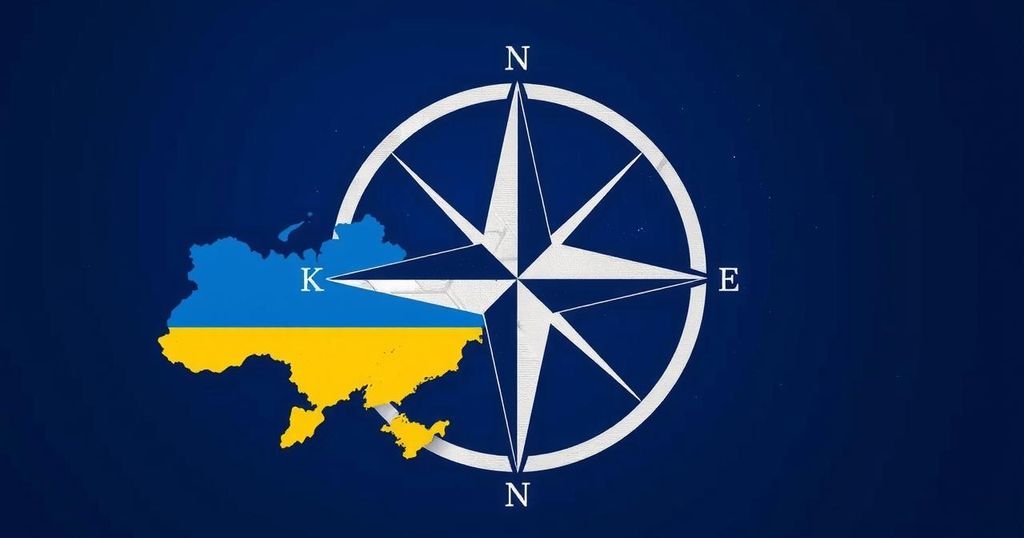NATO Secretary-General Mark Rutte cautions President-elect Trump against a weak peace deal for Ukraine, warning it could strengthen adversarial powers like China, Iran, and North Korea. Rutte emphasizes the need for robust support to Ukraine to prevent authoritarian regimes from gaining an advantage. Recent discussions among U.S. leaders indicate differing perspectives on the conflict’s geopolitical significance.
Mark Rutte, the NATO Secretary-General, has issued a cautionary warning to President-elect Donald Trump regarding the potential ramifications of enforcing a fragile peace agreement on Ukraine amidst its conflict with Russia. Rutte articulated that such a deal could pose significant risks not just to European stability, but to global security by inadvertently empowering authoritarian regimes, including Russia, China, North Korea, and Iran, which could exploit the situation to advance their interests.
During an interview with The Financial Times, Rutte emphasized that a deficient peace settlement would not only embolden aggressive leaders but also allow for a strengthening of ties among adversaries like Vladimir Putin, Xi Jinping, Kim Jong-un, and Iranian officials. He expressed concern about a scenario where these leaders unite in their celebration of a suboptimal agreement, stating, “We cannot have a situation where we have Kim Jong-un and the Russian leader and Xi Jinping and Iran high-fiving because we came to a deal which is not good for Ukraine.” This commentary followed a crucial meeting on November 23 between Trump and his national security advisors.
Recently, UK Prime Minister Keir Starmer acknowledged that a diplomatic resolution to the Russo-Ukrainian conflict is likely imminent, coinciding with President Joe Biden’s approval of a new military aid package for Ukraine. Meanwhile, Trump’s team positions the conflict primarily as a European issue, advocating for a greater U.S. focus on China and Iran instead of the Ukrainian situation.
The current geopolitical landscape, characterized by the ongoing conflict in Ukraine and its implications for global security, is of heightened concern among NATO allies. The warning from NATO Secretary-General Mark Rutte underscores the interconnected nature of international relations, particularly the relationship between Western countries and authoritarian regimes. As the United States approaches potential shifts in foreign policy under President-elect Trump, the dynamics of defense alliances and military support are critically examined, especially with respect to Ukraine’s aspirations for NATO membership after the perceived failures of the Budapest Memorandum.
In summary, NATO Secretary-General Mark Rutte’s warnings about the dangers of an inadequate peace settlement in Ukraine highlight significant security concerns. The potential for such an agreement to embolden global adversaries like Russia, China, North Korea, and Iran cannot be overlooked. As discussions continue about the future of U.S. foreign policy under Trump, the importance of a cohesive approach to NATO and its strategies cannot be underestimated.
Original Source: euromaidanpress.com






